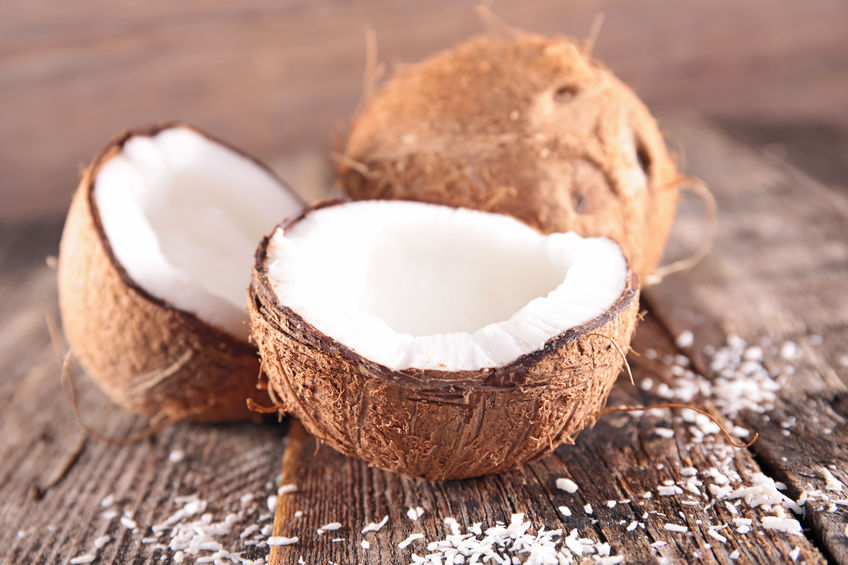By John Salak –
There’s no getting around it. Coconut is just a happy, feel-good word. More importantly, though, natural coconut products are a tasty and feel-good food with benefits whether they are eaten, drank or used in other ways.
In fact, the toughest of tapping this nut’s value may involve breaking through its outer shell to get to its inner goods. Of course, to fully appreciate the benefits the coconut brings, its important to consider its various adaptations, all of which hold their own nutritionally.
Almost everyone is familiar with coconut-type candies. For generations, kids have tucked into Mounds, Almond Joys and Bounty candy bars, while others enjoyed coconut frosted cakes, sweetened coconut toppings and a stream of coconut hard candies and mints. Unfortunately, these traditional treats don’t really offer much nutritional benefits thanks to all the added sugar nor do they reflect coconut’s natural flavor. Securing coconut’s actual rewards means going au naturel.
In case there’s any question as to whether a coconut is a fruit, vegetable a nut, it is, in fact, a one-seeded drupe. If that doesn’t clear things up, a drupe is a fruit that has a hard covering on the seed, like a peach or cherry. But walnuts, almonds, and pecans are also drupes even though they are commonly referred as nuts.
Regardless of what you call it, coconuts yield lots of related products, which have found their way into smoothies, frying pans, salad dressings, water bottles and more. There is coconut meat (the white fleshy inside), milk, water, flour, oil and even sugar. In recent years, the purported nutritional benefits of these products have soared, leading, in particular, to rising demand for coconut water, milk, flour and oil.
Admittedly, some outlets and research groups are quick to note that not all of the fruit’s reputed benefits, like its ability to fight heart diseases, have been fully vetted. Yet there is little argument that natural coconut products deal up sizeable nutritional and medicinal gains, including but not limited to improving immunity, stabilizing blood sugar, aiding digestive health and helping to foster weight loss.
Coconut subproducts do differ in benefits and nutritional value. A single serving of coconut meat, for example, has 160 calories, 15 grams of fat, 4 grams of fiber, 2.8 grams of sugar and 1.5 grams of protein. Because the meat contains coconut oil, it may help boost good cholesterol, while lowering bad cholesterol.
Healthline.com also report that coconuts support weight loss efforts because the
medium chain triglycerides (MCTs) they hold promote feelings of fullness while burning calories and fat. Coconut meat’s high fiber content also makes individuals feel full, reducing the desire to overeat. This same fiber goes further to support bowel regularity and a healthy digestive system.
MCTs can also strengthen gut bacteria, which may reduce the chance of inflammations and conditions such as metabolic syndrome, Healthline.com adds. If that’s not enough, various outlets underscore that coconut’s high fat levels can help individuals absorb fat-soluble nutrients like Vitamins A, D, E and K.
Since coconut meat and oil are rich in antioxidants, there is growing consensus that their ability to eliminate free radicals can reduce oxidative stress and lower the risk of metabolic and aging-related diseases. By itself, coconut oil may even be able to fight harmful yeasts in the body that can lead to infections.
Britain’s Netdoctor even goes as far as to report that coconut water, the clear liquid found at the center of the fruit, may help prevent kidney stones because its thwarts crystal deposition in the kidney tissue.
Okay, not everyone is going to list coconut meat, milk, water, flour or oil as must-have diet components. But this could lead to an argument with veteran actor Dustin Hoffman, who summed up his beliefs with the following. “Two basic items necessary to sustain life are sunshine and coconut milk.”











